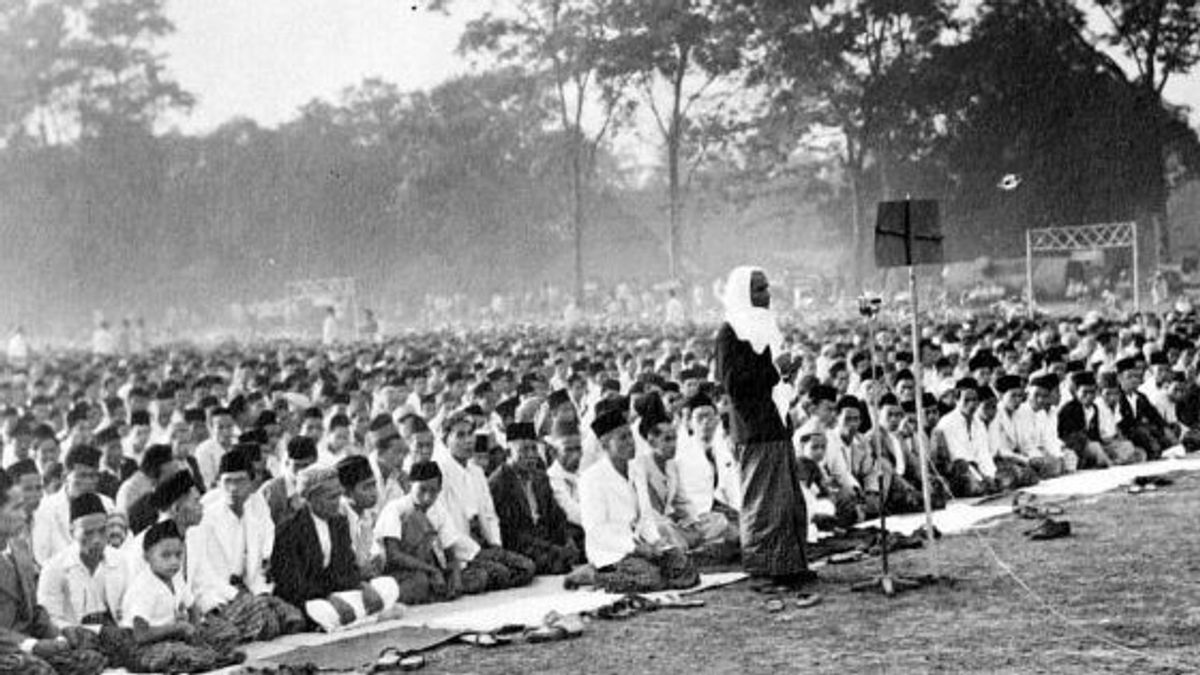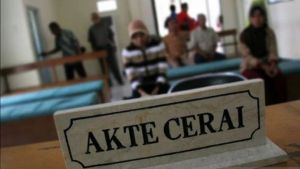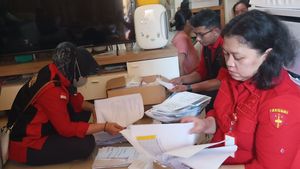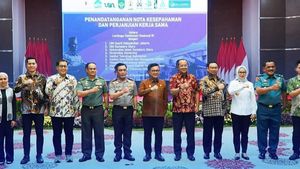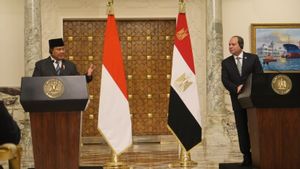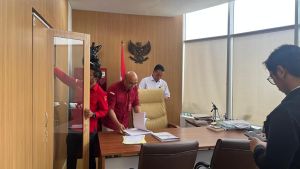JAKARTA - The Dutch' treatment of the bumiputras is far from humane. Racism and other negative sentiments are always directed at the natives. Moreover, they were squeezed like dairy cows by the Dutch. Muslims did not remain silent.
Ulama who had just returned from the holy land of Makkah also echoed resistance. Mosques became an important part of the political spread of resistance against the Dutch colonialists. As a result, the resistance of Muslims against the invaders emerged everywhere.
The Dutch colonial period was the dimest phase in the history of the Indonesian nation. This phase made the bumiputras feel that their pride was trampled on. They are treated inhumanely. The degree was made occupying the lowest strata in society.
This condition made all the bumiputras furious, no joke. Muslims, let alone. They considered the Dutch did not deserve to be leaders, let alone were feared by the natives. The narrative was later strengthened by scholars who had just returned from the pilgrimage from Makkah.
They not only brought religious knowledge but also brought an import ideology that the Dutch feared. Pan Islamism, his name. Pan Islamism is remembered as an understanding that outlines invites all world Muslims to move against colonialism and imperialism on earth.
Whoever perpetuates colonialism will surely be fought with all his might. However, it takes a long process to understand that it can stay in the sanubari of Muslims. When that understanding began to nest, at that time the war broke the chain of colonialism took place everywhere.
"The idea of Pan Islamism, whatever it is -- the idea is a ghost circulating everywhere like the Islamic fundamentalism of today should not be allowed to spread to the Dutch East Indies. Connection with western culture is the ultimate goal of the colony."
Islamic culture is antithesis towards that goal. Any indication that - in their daily lives, not their religion - Muslims prefer Islamic or Eastern ways rather than Western ways that are considered a step back on the way to civilization and an indication of anti-Dutch mentality, said Kees van Dijk in the bookHindi Netherlands and World War I 1914-1918(2013).
The resistance to the Dutch colonialists surfaced everywhere in the 1880s. However, this movement did not happen suddenly. The scholars actually made the mosques the center of the political movement against the Dutch.
The mosques are not always places to study religion, but become the main medium for Pan Islamism to be distributed to Muslims. The result was brilliant. The eruption of Pan Islamism surfaced. Because all Muslims have experienced for themselves the inhumane treatment of the Dutch.
Every day the mosque was crowded, the colonial government of the Dutch East Indies began to feel uneasy. The owner of power then often indicated the fullness of the mosque as a sign of a religious fanaticism movement that was ready to sounded the holy war.
Geliat masjid sebagai pusat perjuangan perlawan terhadap penominasi pun berlangsung. Bahkan, dalam setiap sanubari umat Islam. Resistance terhadap penominahan adalah sebuah langkah yang menjadi. Sebab, langkah itu adalah upaya memberikan pemberintah Belanda bahwa semua manusia equivalent di mata masih kuasa.
The breakthrough, which started from the mosque, then troubled the Dutch in many ways. The rebellion made the Dutch desire to take advantage of the excessive profits from colonialism to be disrupted. Moreover, when the war was sounded by Prince Diponegoro in the Java War (1825-1830) and also Banten farmers in 1888. Even then, the mosque was still the basis for resistance to the invaders until the Indonesian Revolutionary War (1945-1949) occurred.
There are special things that we will find when we visit old mosques in Jakarta. In addition to getting spiritual shower, we will also get heroic stories about the struggle of Muslims at the time of time. Of course, if we were to ask about the role of the hundreds of years old mosque.
The former is generally a prayer room or a violation. Exemplifying the function of the mosque during the Prophet's time, among these old mosques through its congregation, has ignited the spirit of struggle against colonialism at that time Even among the mosques, it was used as the headquarters of the struggle during the physical revolution against the Dutch," explained Ali Shahab in the book Betawi: Queen of the East (2002).
The English, Chinese, Japanese, Arabic, and French versions are automatically generated by the AI. So there may still be inaccuracies in translating, please always see Indonesian as our main language. (system supported by DigitalSiber.id)
